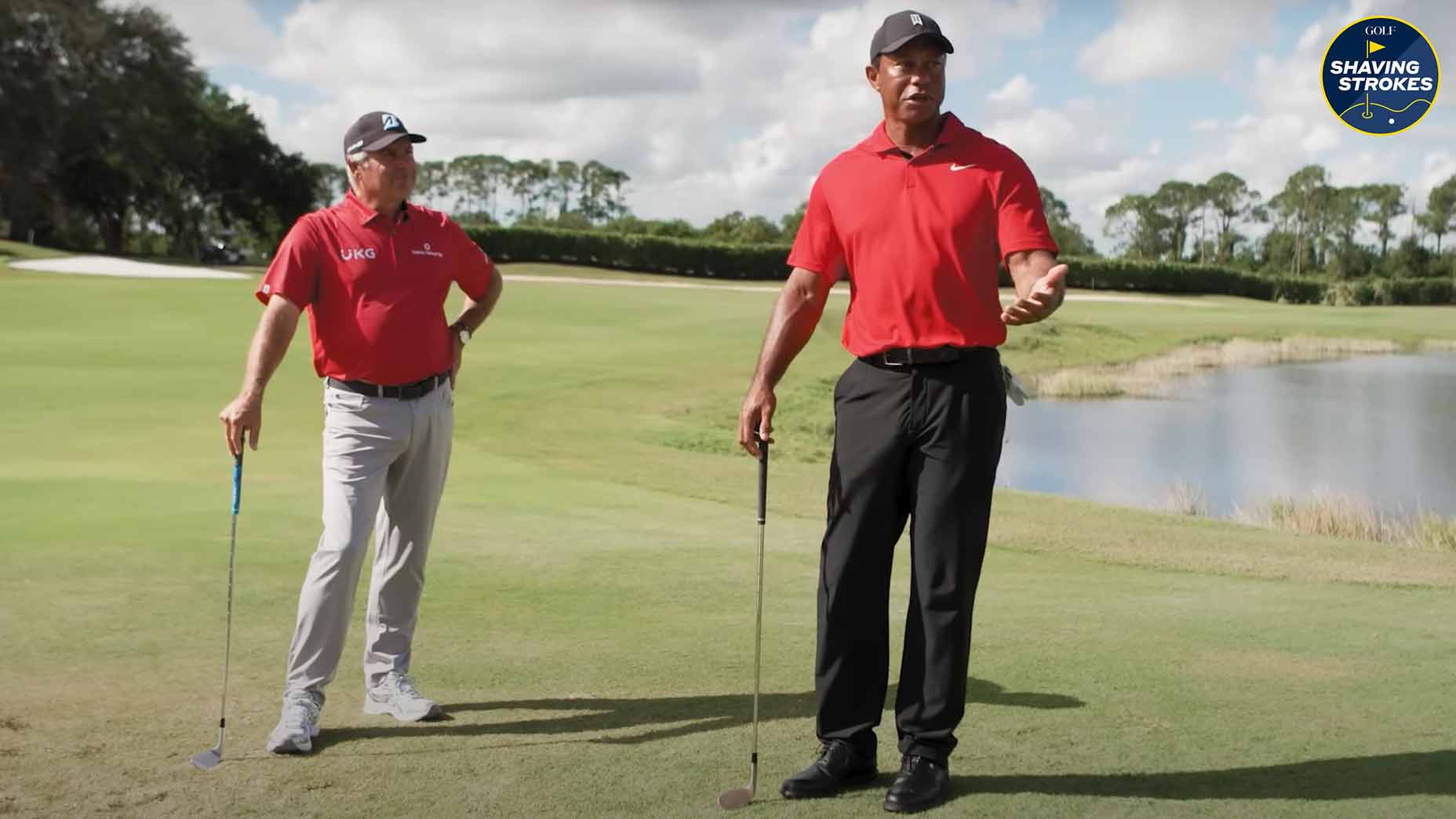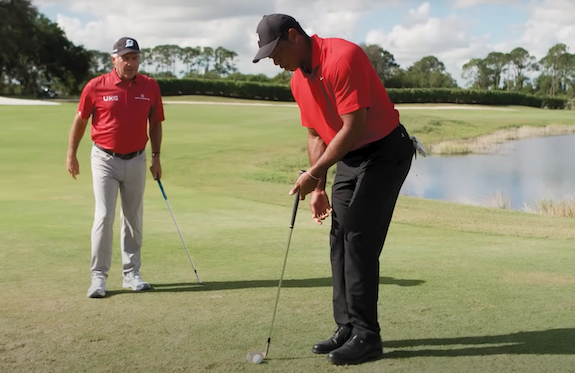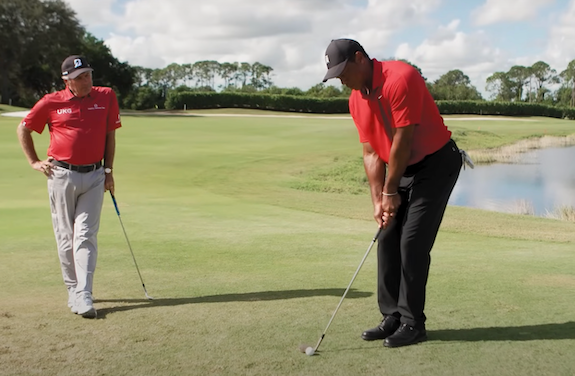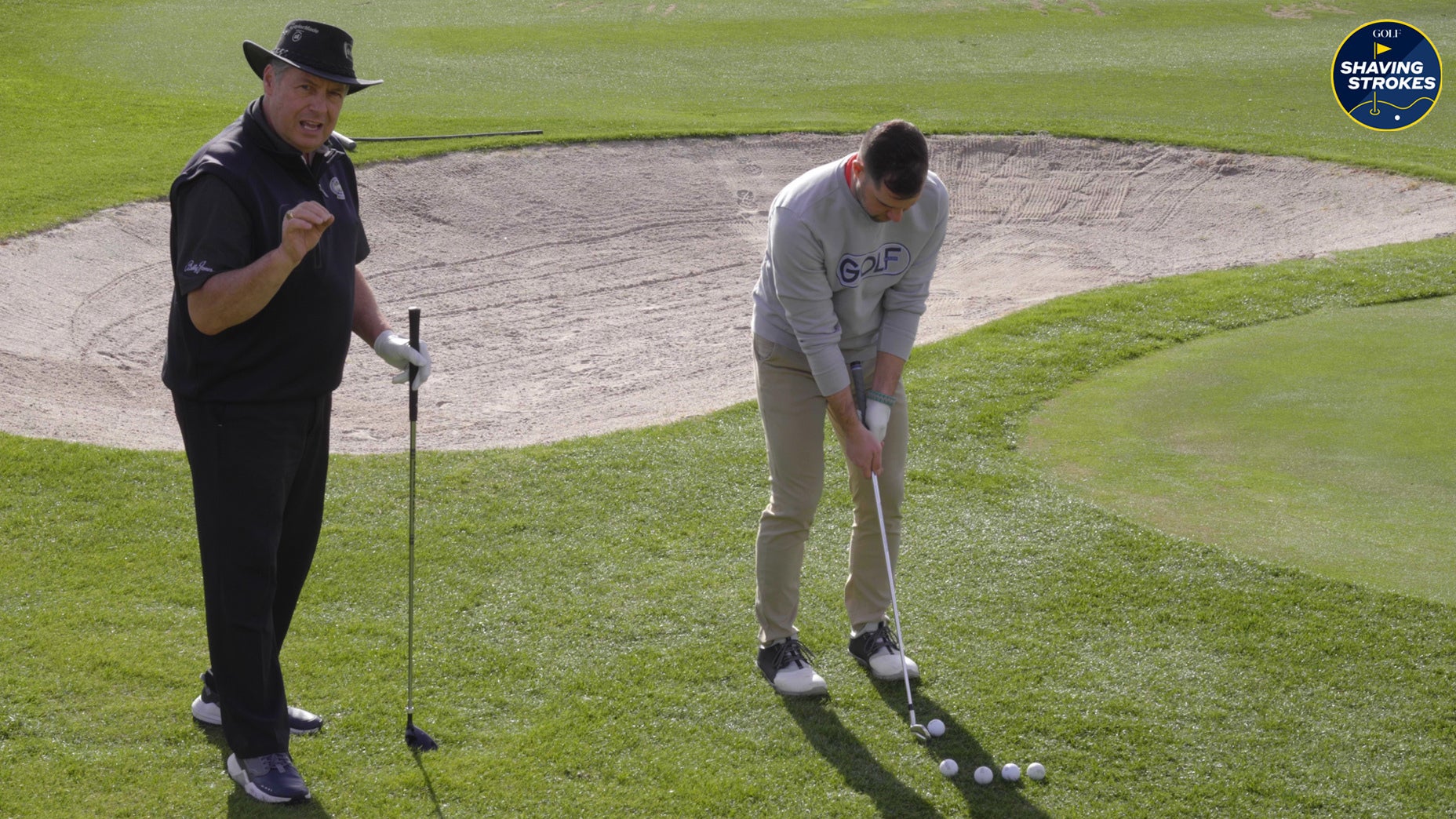
Tiger Woods reveals some secrets to Fred Couples.
YouTube / PGA TOUR Superstore
Welcome to Shaving Strokes, a GOLF.com series in which we’re sharing improvements, learnings and takeaways from amateur golfers just like you — including some of the speed bumps and challenges they faced along the way.
Not too long ago, I got a lesson from a GOLF Top 100 Teacher showing me how to hit a high draw with my 9-iron from about 135 yards out — something I’ve never even attempted doing as a mid-handicapper who often struggles making good contact from this distance.
It was a glorious feeling.
But now I’m itching for more. Perhaps in part because of the video below, in which the GOAT Tiger Woods offers a lesson for golfers hoping to learn his famed saucy draw chip. After watching the video, every golfer can at least practice the draw-chip as part of their short game repertoire — just don’t expect to stick it as close as the 15-time major champ without hitting lots of them.
Tiger Woods shares his tips for hitting a draw chip with Fred Couples
In the video above (courtesy of PGA Tour Superstore), Woods gives Fred Couples a tutorial on his sticky draw chip, which he often uses when just off the putting surface.
But before addressing your ball and hitting this type of chip, Woods says it’s important to find your landing area, utilize the size and shape of the green, envision the shot, and then go execute it.
“We’ve got close to 50 to 60 feet of green to work with,” Woods explains. “So I’m going to hit a little draw chipper here. It’s right to left, with the grain running right to left as well.
“For me, when I try to hit a draw, there are a couple things [I consider]. If I’m going to hit a higher draw, I’m going to have the face open, but I’m going to try to close it up at impact.”
Next, Woods explains how to pull off both the low-running chip as well as the higher chip.
How to hit Woods’ low-running chip draw

“For this one, because it’s a low runner, I’m going to put my [club’s] toe into the ground, hands high, aim right, and swing right,” he says. “So wherever I want the ball to start out at, that’s where I’m swinging.”
As he addresses the ball, Woods goes into more detail about how his setup should look.
“Toe in the ground, high handle, ball back,” Woods says. “If I want to hit one starting at that shadow with some draw spin, I’m going to swing out to the right where that shadow is, which produces a slight draw.”
How to hit Woods’ higher chip draw

When Woods wants to hit a higher chip draw, he says he really opens the clubface, but also concentrates on controlling the face through impact in order to get the type of spin he wants.
“If I want to hit a higher draw, my face would be wide open,” Woods explains. “But at impact, I’m trying to get it to almost square if not fully square, to put a little draw on it.”
After seeing Woods hit these two types of draw chips, Couples adds a piece of advice for all amateurs to remember.
“For the best chippers in the world, the ball’s flying at the same height almost [every time],” he says.
Couples and Woods then talk about how important consistent ball-flight is when it comes to chipping, and how golfers need to avoid the temptation of hitting it higher.

“I don’t want it to get higher, I want it as low as I can to the ground,” Woods explains. “I was taught by Raymond Floyd to always land it within a foot to a yard onto the green, and then let it do the rest of the work.
“What I’ve found that works best for me, whatever length of shot that I have, I try to imagine whatever club I’d need to make the same stroke that I make with a putter. So if I was going to hit a normal chip in a tournament, this distance would be something like a 9-iron — so same length of stroke as I would for a putt.”
Couples then gives a good visual of how things look through the eyes of Tiger Woods.
“You can [stand over your ball] and you can throw it to the flag, and that result looks exactly like Tiger’s chip,” he says.
Whether you’re looking to expand your chipping game or just need some basic tips to help with your consistency, this short game advice from Woods and Couples is a great place to start.





